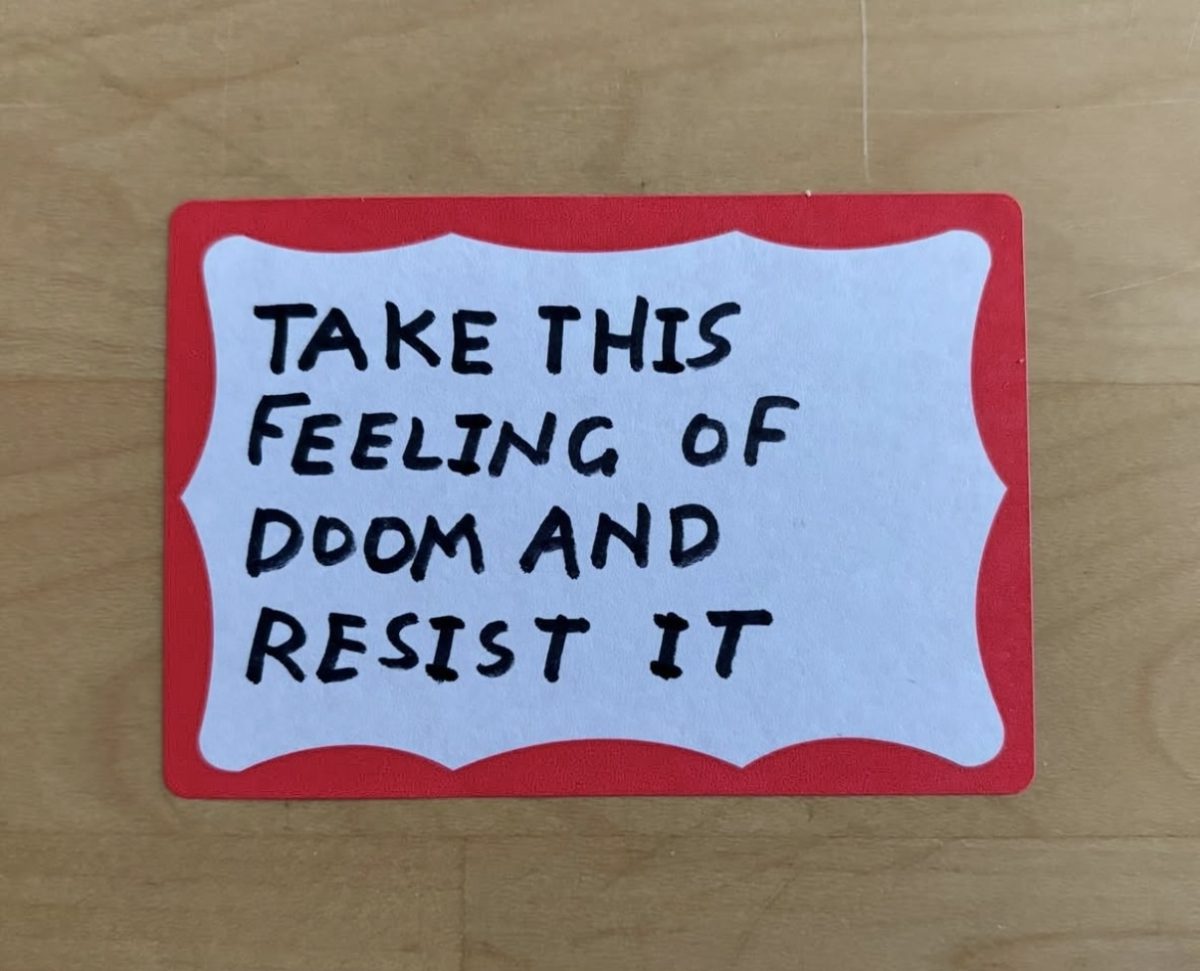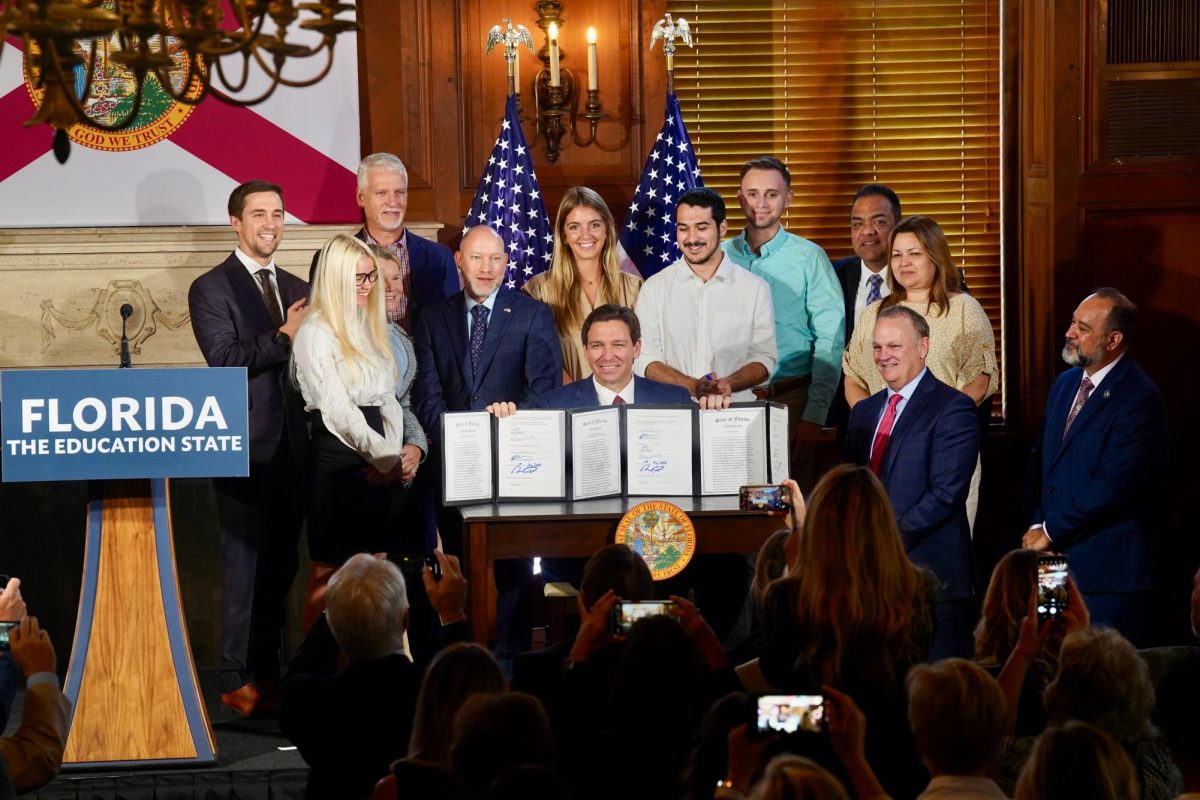President Szymanski,
I was excited to hear that anti-racism education will be mandatory for incoming Freshmen at UNF, according to the recent News4Jax story. But I have to admit I felt serious concern when I saw it compared to the “Fearless Woman” campaign. Here’s why.
The public-facing side of the Fearless Woman campaign is apparently well-intentioned but ultimately ineffective. It involves post-its placed in women’s restrooms that offer bland encouragement to no clearly specified end. According to a press release about this campaign, this initiative was designed to “empower” women–but “empower” is a vague verb. Empower them to do what? Who took their power in the first place?
My students talked to me about their impression of the Fearless Woman campaign last semester. They couldn’t tell what the campaign strove to accomplish, but they had the vague impression that it was designed in part to combat sexual violence on campus. But, addressing women in the secrecy of gender-segregated bathrooms does nothing to “empower” them or make them any safer. If it is indeed, in part, an anti-sexual violence campaign, why not try to “empower” men to end rape? Post-it notes in men’s bathrooms could say: “If you see a woman walking by herself, don’t rape her” or “Never have sex without sober, enthusiastic consent.” Of course, no post-it note campaign could ever solve the problem, but targeting only women in this way is extremely misguided.
I get the impression that there is more to this campaign than the post-its, but I have no idea what that might be. If the goal is professional development, as the uninformative website for this campaign suggests, it should acknowledge that institutional obstacles hold women back—not their own fear. Imagining that women only need more affirmations to succeed professionally is an unintentional form of victim blaming, and it ignores the data about gender gaps in employment.
Whatever this campaign aimed to accomplish, why was I, as the coordinator for the Gender and Women’s Studies minor, not contacted to help design this campaign when it was still in the works? Why has no one ever contacted me to tell me what it was about after its implementation, so that I could talk to students who study women and gender about it?
We cannot afford to make this same mistake when it comes to anti-racism education. I understand that we have smart, motivated, and creative staff working on these initiatives, but they must collaborate with faculty who have expertise in this area to create effective programming. Are they currently talking to Dr. Rudy Jamison and Dr. Chris Janson at the Center for Urban Education and Policy? What about Dr. Angela Mann who studies anti-racism and works closely with community partners to end racism in schools, or Dr. Curtis Phills who studies implicit biases? What about Dr. Chau Kelly, Dr. Tru Leverette, Dr. Keith Cartwright, or Dr. Carolyne Ali-Khan, who have expertise in topics ranging from African history to anti-racist pedagogy? This list is not exhaustive; it represents merely a fraction of the faculty we have who have already been working on anti-racism initiatives in their own classrooms and across UNF’s campus for years. A campaign designed by these specialized faculty working together with staff who specialize in inclusion and anti-racism will make a real difference on our campus where survey data attests that most students and faculty have experienced racism first hand.
As the coordinator of the gender studies minor, I will remind whoever is in charge of designing this new program for incoming Freshmen must include a segment on intersectional forms of racism, such as misogynoir. A course for incoming Freshmen is a great idea—if and only if it is done well. But we cannot stop there. Let’s get this first step right and then continue dialogue with our in-house experts about what we can do next to foster a campus where racism and sexism cannot be tolerated.
Sincerely,
Dr. Jennifer Lieberman
Associate Professor of English
Addendum: President Szymanski forwarded my letter to Whitney Meyer, who has replied. Still, this conversation deserves a broader discussion among interested parties at UNF, considering UNF’s track record of creating change without thoughtful consultation (mental health training without consulting counseling services, for example).
___
For more information or news tips, or if you see an error in this story or have any compliments or concerns, contact editor@unfspinnaker.com.















